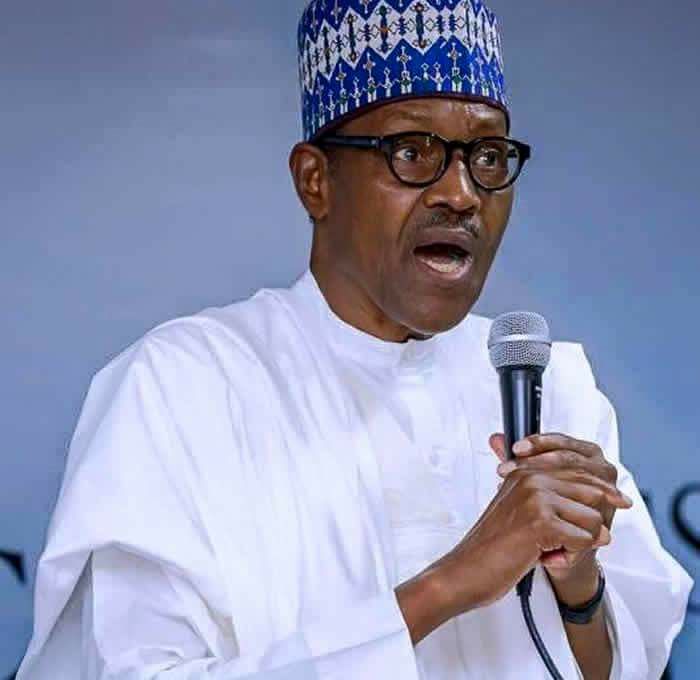Abuja – President Muhammadu Buhari admitted on Tuesday that illicit funds were used in recent elections in the country mainly to buy votes.

He warned that the growing trend of monetary inducement during elections would have dire consequences on the polity if not checked.
Buhari also argued that the dangers were that the influence of money may, in the long run, subvert free choices by voters and allow unprincipled individuals to gain access to leadership positions.
The president bared his mind when he spoke at the National Democracy Day Anti-Corruption Summit, hosted by the EFCC, with the theme, ‘Curbing Electoral Spending: A Panacea for Public Corruption’.
He said: “Regrettably, the recent political experiences have been characterised by the corrupting influence of money on party politics and electioneering processes.
“This unwholesome practice has dire consequences on our nations, in subverting the exercise of free choice by voters, elevated corrupt and unprincipled individuals to positions of leadership and entrenching the structures of democracy devoid of accountability.”
While trying to buttress the ills of vote buying, he said electoral spending manifested in different forms, hence steps should be taken to de-commercialise the political process so that true democracy could survive and thrive.
He said even though the country was not in short supply of legal frameworks to combat reckless electoral spending, the provision of section 90 of the Electoral Act, 2010 (as Amended) explicitly puts a cap on the amount candidates for different political offices must expend on elections, failing which they would be violating the law.
“Of greater significance is the provision of section 88 of the Act which prohibits a political parties in Nigeria from ‘possessing any fund outside or retaining funds or other assets remitted to it from outside Nigeria’.
“The philosophical underpinning of the above provisions and other related provisions of the Act is to prevent desperate politicians from buying their ways into political offices at the expense of low-spending law-abiding individuals.”
At the event attended by the President of Rwanda, Paul Kagame, including famous anti-corruption advocate, Professor Patrick Lumumba, Buhari said going forward, his administration would unveil stern measures aimed at curbing corruption, part of which would involve abolishing of bank secrecy jurisdictions and cracking down of safe tax havens for corrupt assets.
Buhari, while giving an insight into how he intended to fight corruption in his second term, said he would strengthen the capacity of the Economic and Financial Crimes Commission and other anti-corruption agencies by providing additional material, organisational and logistical support.
This would also involve closing existing legislative loopholes, facilitating collaboration with the judiciary, and strengthening of the criminal justice system.
Other measures the president said would be adopted include the enforcement of effective asset declaration by public office holders, ensuring sanctions by professional bodies against lawyers, bankers, brokers, public officials, as well as individuals facilitating corrupt practices.
“We would ensure comprehensive support and protection to whistleblowers, witnesses and victims of corruption; adopt and formulate the policy of ‘naming and shaming’ all those who engage in corrupt practices while encouraging and honouring those who do not.
“This would also include educating, mobilising and encouraging Nigerians at the grassroots level to take ownership of the fight against corruption, while insisting on the unconditional return of looted assets kept abroad and further strengthening of international cooperation through information and mutual legal assistance,” Buhari stressed in his address at the summit.
Meanwhile, acting Chairman of EFCC, Ibrahim Magu, said a total of 1,207 convictions had been secured by the anti-graft agency between 2015 and May 2019.
He said between January and May 2019, another 406 convictions were secured through various litigations instituted by the anti-graft agency against corrupt government officials.
A breakdown of the convictions showed that 103 convictions were secured in 2015; 195 in 2016; 189 in 2017, and 314 in 2018.
Magu who noted that significant strides had been made in the fight against corruption, said the task of taming corruption would remain daunting unless Nigerians keyed into the project.
He said: “The principles of democracy have been bastardised over the years by the ruling elite in some countries across the globe.
“Nigeria, in particular, had a fair share of the unbearable scourge of a chronic ‘elite-capture syndrome’. This has primarily been achieved by manipulating the electoral processes using stolen public wealth to subvert the wishes of the people.
“Electoral spending by politicians is often linked to voter inducement in Africa and in our local parlance, ‘vote buying’.
“Worthy of note is the fact that whenever one is induced to sell his vote, he automatically loses the moral equilibrium to challenge corrupt tendencies of those elected.
“On the other hand, vote selling by the electorate has mostly been due to several factors, including lack of proper political education.”
Mr President your party is actively took part in vote buying, You are all guilty